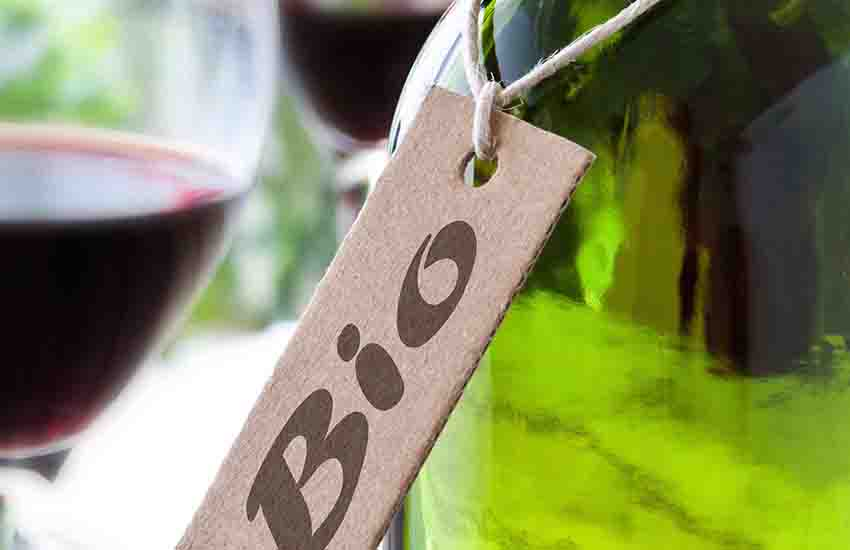3 questions that you may be asking yourself about organic wine

Today, we see "organic" everywhere. You see it in food, in cosmetic products, in some drugs, etc. and obviously, in wine!
Organic wine has become fashionable in France and abroad over the last few years. However, the concept of organic wine still remains unclear for everyone. What exactly does this term mean? Does it taste different from a traditional wine? Is organic wine more expensive? This article and the clear answers from the winemaker, Fabien Chasselay, will tell you everything you want to know about organic wine!
1) What is organic wine?
Officially awarded to wines since 2012, the Organic Farming label meets a specific specification defined by Europe, which stipulates that wine must be treated with very special care. Although there are too many of these criteria to mention one by one, they all involve using natural products and banning the use of pesticides and other chemical products such as fertilisers and GMOs. Since 2012, the OF label no longer concerns vine treatment but now refers to all stages of vinification, right up to bottling. The OF logo must therefore appear on the label of bottles certified as organic wines. "An organic wine represents the results of a wine growing method that involves a process with great respect for the vine and more generally nature", explains Fabien Chasselay, from Domaine JG Chasselay (Beaujolais). "The organic crop provides the wine with a more personal and more precise touch. It is a great pleasure to work in this way. It makes you feel more at one with nature", he considers.
2) Does organic wine have a special taste?
This question is difficult to answer! Some winemakers say that organic wines are recognised by their mineral and fruity character, and others by floral hints in red wine, a characteristic that is rarely found in traditional French red wines. Fabien believes that the taste of a wine above all depends on the person tasting it: "discovering a wine is like admiring a work of art. Some will state that such and such a painting is an absolute master piece, whereas other will not understand it. It is very subjective! So, I don't think that a wine has a special taste simply because it is organic, because above all this is based on opinions and feelings". However, an organic wine without sulphites may have a particular taste.

Fabien Chasselay, from Domaine JG Chasselay
3) Is organic wine more expensive?
Most winemakers and wine growers who choose to practice organic wine growing explain this decision based on wanting to focus on quality rather than quantity. Result: more labour is required and harvesting is more random, because the vine is more fragile, which ultimately results in a lower yield for winemakers. Therefore, this involves a slight increase in prices compared to traditional wine, although this is difficult to estimate. To give you an idea, Agence Bio states an average price that is €1.80 higher at €8.70 for the bottle of organic wine compared to €6.90 for a traditional wine, according to a Figaro.fr article published in 2014.
For Fabien, an organic wine should not necessarily be more expensive than another: "however, the production of organic wine requires more time and a few more resources. However, when we obtained the "organic" label, we did not increase our prices. We simply focused on a larger and better quality customer base. Above all, value for money is what matters most. Seen from this angle, organic wine is therefore no more expensive than an average range traditional wine. Also it is perfectly possible to buy a quality organic wine for less than 10 euros", highlights the winemaker.
4) Is it better to drink organic wine or traditional wine?
Now that you know a little more about organic wine, you are perhaps wondering which camp to choose: the wine that you usually drink or the environmentally-friendly wine? For Fabien, this debate is irrevelant. "It would be a mistake to pit these two types of wine against each other and categorically be seen to choose only one. You can quite easily drink both!", he believes. "We need to be careful not to demonise traditional wine! Everyone is free to produce wine however they want. So it is important to respect that", adds Fabien.




